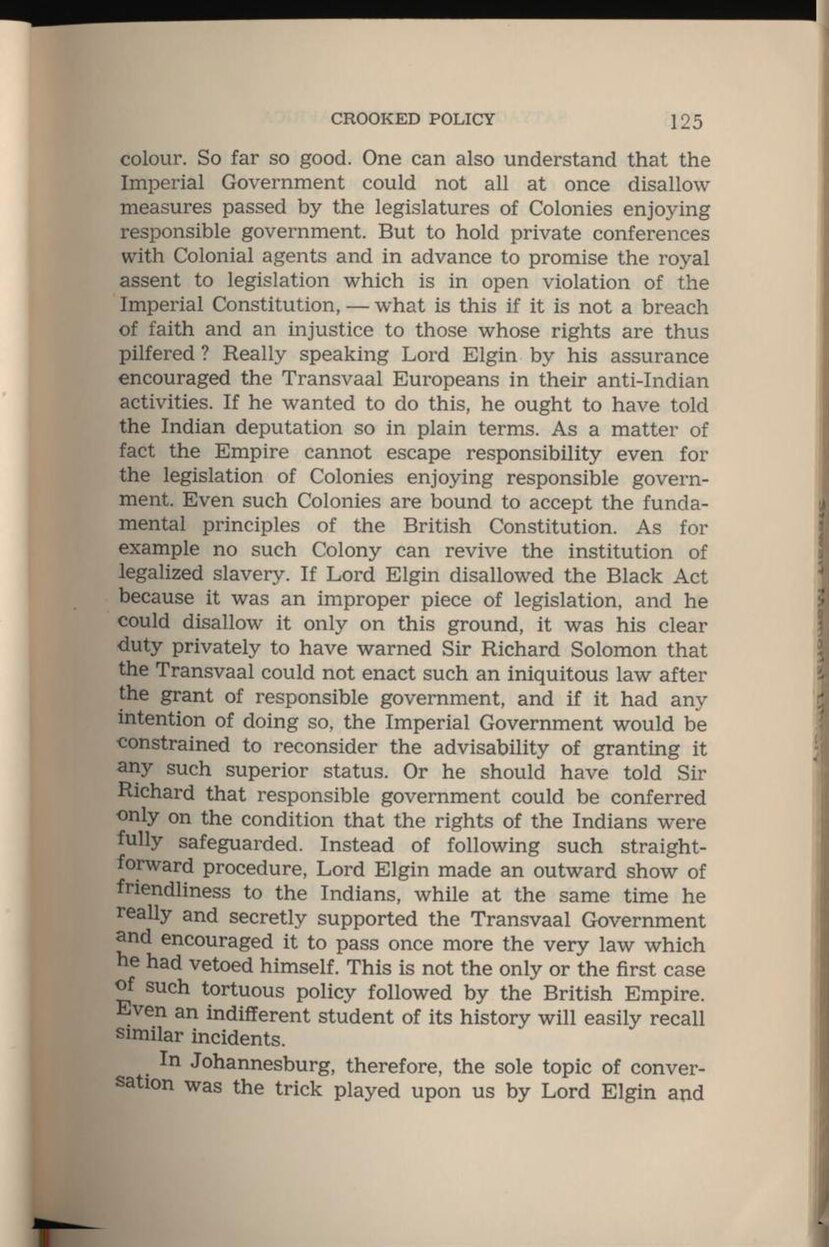colour. So far so good. One can also understand that the Imperial Government could not all at once disallow measures passed by the legislatures of Colonies enjoying responsible government. But to hold private conferences with Colonial agents and in advance to promise the royal assent to legislation which is in open violation of the Imperial Constitution,—what is this if it is not a breach of faith and an injustice to those whose rights are thus pilfered? Really speaking Lord Elgin by his assurance encouraged the Transvaal Europeans in their anti-Indian activities. If he wanted to do this, he ought to have told the Indian deputation so in plain terms. As a matter of fact the Empire cannot escape responsibility even for the legislation of Colonies enjoying responsible government. Even such Colonies are bound to accept the fundamental principles of the British Constitution. As for example no such Colony can revive the institution of legalized slavery. If Lord Elgin disallowed the Black Act because it was an improper piece of legislation, and he could disallow it only on this ground, it was his clear duty privately to have warned Sir Richard Solomon that the Transvaal could not enact such an iniquitous law after the grant of responsible government, and if it had any intention of doing so, the Imperial Government would be constrained to reconsider the advisability of granting it any such superior status. Or he should have told Sir Richard that responsible government could be conferred only on the condition that the rights of the Indians were fully safeguarded. Instead of following such straightforward procedure, Lord Elgin made an outward show of friendliness to the Indians, while at the same time he really and secretly supported the Transvaal Government and encouraged it to pass once more the very law which he had vetoed himself. This is not the only or the first case of such tortuous policy followed by the British Empire. Even an indifferent student of its history will easily recall similar incidents.
In Johannesburg, therefore, the sole topic of conversation was the trick played upon us by Lord Elgin and
